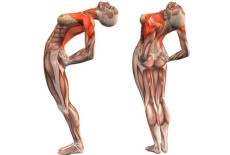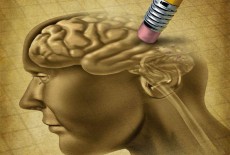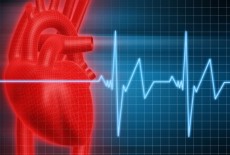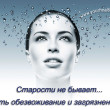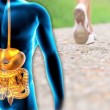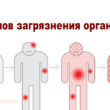Recovery Program function of the respiratory system
 The program of restoration and preservation of health developed by the Academy of Health Coral Club. Based on the book O.A .Butakova “Compendium of health programs.”
The program of restoration and preservation of health developed by the Academy of Health Coral Club. Based on the book O.A .Butakova “Compendium of health programs.”
Nutritsiologikal and rehabilitation programs developed by doctors of various specialties and are based on the natural means of the highest quality.
Combination Three (Gathering herbs number 3) – 1 tablet 2 times a day, can be dissolved in 1 cup of warm water and drink as tea. Relieves pain and spasms. Stimulates blood flow to the patient body while cleansing it provides sputum from the airways and make breathing easier.
Licorice root (LicoriceRoot) – 1 tablet dissolved in 1 cup water and drink as a tea three times a day. Immunomodulatory and has a tonic effect that blogotvorno affect the function of the bronchi. The drug has protivovospalitlnym and antiallergic activity.
Colloidal Silver (Silver-Max) – 1/2 tsp 3 times per day. Natural antiseptic.
Garlic (Garlic) – 1 capsule 2 times a day with meals. It helps neutralize antserogenov under adverse environmental conditions, and improves the functioning of the gastrointestinal tract and helps to restore immunity.
Euphrasia (Eyebright) – 1 tablet 3 times a day. Rich in vitamins A, C, B, contains a lot of silicon and iron. It stimulates the immune system and improves the quality of blood.
Ant tree bark (Pau D’Arco) – 1 capsule 3 times daily after meals. Has antiviral effect.
Coral Mine (Coral-Mine), Coral water, coral calcium – one bag to throw in a glass enclosed vessel with a capacity of 1.5 – 2 liters of drinking for 15-20 minutes before meals and 1 – 1.5 hours after eating. Drink during the day. You can drink capsules, tablets and powders. Aimed at maintaining optimal body water balance. Has improved biological properties ( low surface tension, slightly alkaline pH levels, contains about 70 essential minerals, macro -and microelements in digestible form and optimal ratios, cleaned of chlorine and toxic substances ), meets the needs of the body’s cells. Water has an ordered structure of atoms becomes bioavailable digestible.
Human Respiratory System – a set of organs in the human body providing external respiration or exchange of gases between the blood and the external environment and a number of other functions.
The respiratory system consists of human tissues and organs, providing pulmonary ventilation and pulmonary respiration. By pneumatic paths include: nose, nasal cavity, pharynx, larynx, trachea, bronchi and bronchioles. Light consist of bronchioles and alveolar sacs, as well as of the arteries, capillaries, veins and pulmonary circulation. The elements of the musculoskeletal system associated with breathing are ribs intercostal muscles, the diaphragm and the auxiliary respiratory muscles.
Respiratory system takes 2nd place after digestive volume antigen enters the body of information, so here comes the final antigen -dependent lymphocyte differentiation stage to form effector cells of cellular and humoral immunity and memory cells.
Function of the respiratory system
- Airway conducted air from the external environment to light and vice versa.
- Light exercise gas exchange between the atmospheric air and the blood, which is part of the internal environment.
- Oxygenation and removal of carbon dioxide from it and some are not in respiratory functions.
Causes of malfunctions of the respiratory system
- The main cause of most acute and chronic diseases of the respiratory tract and lungs are infectious inflammatory nature.
- Their pathogens are viruses, bacteria, parasitic fungi. Some infectious diseases (eg, influenza, whooping cough, measles ) are also accompanied by airways disease. Constant contact with respiratory environment determines their vulnerability to infectious agents entering the air with droplets of saliva or mucus of patients. In the respiratory system are always various microorganisms, but their pathogenic influence is only a sharp weakening of the body (for example, cooling, exhaustion ) and reducing its protective forces.
- Chest trauma, strain it help reduce pulmonary ventilation and the development of chronic inflammation of the lungs, and the same is observed in lesions of the respiratory muscles or prolonged bed rest.
- Penetration into the airway foreign bodies ( mainly in children ), vomit ( in critically ill, drunk ) causes bronchial obstruction (see Foreign body, larynx, trachea and bronchi ), reduces the air – filling of the lungs and creates the preconditions for their inflammation.
- Individuals suffering from chronic alcoholism, especially a lot of patients with chronic diseases of the bronchi and lungs due to the instability of the special body to infection and hypothermia.
Impaired function of respiratory disorders in combination with other systems of the body leads to the development of diseases such as bronchitis, pneumonia, asthma, pleurisy, pulmonary emphysema, pleural narrowing gap suppurative processes in the lung, etc.
Jetlag, frequency, type, depth and breathing level, usually accompanies not only respiratory disease itself, but also diseases of the heart, gastrointestinal tract, nervous system, blood and metabolism.
Adverse condition of the mucous membrane of the nasal cavity and the absence of its optimal stimulation can cause the deterioration of the functional state of the body (eye disease, dysmenorrhea, impaired sense of smell, appetite, the secretory activity of the gastric glands, tooth decay, tuberculosis, impaired tissue metabolism, changes in acid-base composition of blood, antitoxic liver function reduction, decrease of leukocytes and others).
Prevention of diseases of the respiratory system
- Refusal of bad habits (smoking, alcohol abuse ) are extremely important to maintain a healthy respiratory system.
- Hygiene facilities . In poorly ventilated room air oxygen concentration decreases and increases the amount of carbon dioxide , and a long stay in a wet and cool conditions promotes diseases of the upper respiratory tract. Optimal state indoor air (temperature 18-20 °, humidity 60-80% ) is achieved by repeated airing it, heating the cold air, moisture special adaptations in its excessive dryness.
- Useful sleep with an open window or outdoors.
- Right act of breathing, which is carried out at a sufficient warming, humidifying and cleaning the air while passing through airways, is also an important measure of prevention of diseases of the respiratory system. Breathing should be calm, steady, rhythmic, sufficient depth, and is usually carried out through the nose. There are obstacles in the nasal passages (eg, deviated septum, adenoids sprawl, etc.) they must be promptly eliminated.
- Conduct breathing exercises everyday.
- Systematic training and hardening of the body – the most effective measures against adverse weather factors against the harmful effects of wet and cold environment.
- The food should be rich in vitamins A, D, C and B vitamins complex B. The full but not excessive power – the key to maintaining the respiratory system in the normal state.
*Programs are not drugs and their therapeutic doses much lower .




